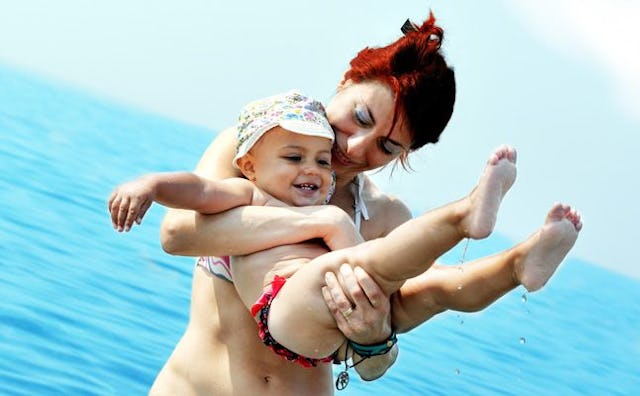I Can Tell How Much You Love Your Baby

I have known and worked with many postpartum mothers who feel overwhelmed, lonely, sad, and even resentful about their situation. And on top of those feelings, they often have a layer of guilt and shame about even having such “ugly” emotions in the first place. They know they love their babies, but they often speak of wondering how they could feel so sad and anxious at the same time. “Why am I not overjoyed?” and “Shouldn’t I just be feeling blissful?” are common questions they’ll ask. And then, there are the mamas who have these feelings and never utter a word about it because the guilt convinces them they shouldn’t share.
What new mothers often don’t realize is that their love for their baby, tangled up with the exhaustion, sadness, loneliness and guilt, is so apparent to those around them. It’s almost impossible to believe, when you’re in the midst of those trying postpartum days, that you can hold both sets of feelings simultaneously – sadness and immense love. These are some reflections I have after working with so many postpartum mamas:
When you stroke his hair repeatedly while we talk, I can tell how much you love your baby.
When you kiss her cheek each time you pick her up, I can tell how much you love your baby.
When you ask me if you should be concerned that he hasn’t pooped today, I can tell how much you love your baby.
When you whisper to her in a voice reserved just for her, I can tell how much you love your baby.
[recirculation]
When you put him to your breast the moment he stirs, I can tell how much you love your baby.
When you tell me about the way she smiles in her sleep, I can tell how much you love your baby.
When you ask me to hold him so you can nap and be better equipped to care for him, I can tell how much you love your baby.
When you ask me for ideas because sometimes you just can’t get her to stop crying, I can tell how much you love your baby.
And most of all, when I see you after you’ve become a mother, I can tell how much you love your baby because you have changed. You even look different to me. Your face holds another dimension that it never held before. Etched into it is this new kind of all-consuming love. And even if you question yourself, and can’t see it yourself right now, please know that it’s there. And believe me when I tell you that you’ll look back on these days and understand that so much of what you were feeling, even the awful feelings, was a result of this transformation into somebody who is learning what it means to love a new child.
This article was originally published on